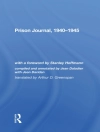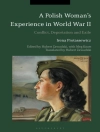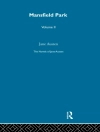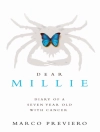Die Wahlverwandtschaften Johann Wolfgang von Goethe – Eduard und Charlotte leben in zweiter Ehe zusammen auf ihrem Landgut und erfüllen sich damit ihre Jugendliebe. Die Zweisamkeit wird gestört, als Eduard seinen alten Freund Otto, einen in Not geratenen Hauptmann, als Berater und Gartenvermesser auf sein Gut einlädt und Charlotte ihrerseits ihre auf dem Internat unglückliche Pflegetochter Ottilie als häusliche Gehilfin zu sich nimmt. Die Harmonie zwischen Eduard und Charlotte ist durch das Eindringen der Freunde gestört: Charlotte fühlt sich zu dem praktisch denkenden Hauptmann hingezogen, der sensible Eduard empfindet eine innige Neigung zur empfindsamen Ottilie. Während Charlotte und der Hauptmann ihren gegenseitigen Neigungen entschlossen entgegenzutreten versuchen, lassen Eduard und Ottilie die langsam entstehende Liebe zu. Aus dieser Wahlverwandtschaft, die sich mit der unabwendbaren Kraft eines Naturvorgangs entwickelt, gibt es kein Zurück, aber auch keinen anderen glücklichen Ausgang.
O autorze
Johann Wolfgang von Goethe was a German writer. George Eliot called him 'Germany’s greatest man of letters… and the last true polymath to walk the earth.’ Goethe’s works span the fields of poetry, drama, literature, theology, humanism, and science. Goethe’s magnum opus, lauded as one of the peaks of world literature, is the two-part drama Faust. Goethe’s other well-known literary works include his numerous poems, the Bildungsroman Wilhelm Meister’s Apprenticeship and the epistolary novel The Sorrows of Young Werther.Goethe was one of the key figures of German literature and the movement of Weimar Classicism in the late 18th and early 19th centuries; this movement coincides with Enlightenment, Sentimentality (Empfindsamkeit), Sturm und Drang, and Romanticism. The author of the scientific text Theory of Colours, he influenced Darwin with his focus on plant morphology. He also long served as the Privy Councilor (’Geheimrat’) of the duchy of Weimar.Goethe is the originator of the concept of Weltliteratur (’world literature’), having taken great interest in the literatures of England, France, Italy, classical Greece, Persia, Arabic literature, amongst others. His influence on German philosophy is virtually immeasurable, having major impact especially on the generation of Hegel and Schelling, although Goethe himself expressly and decidedly refrained from practicing philosophy in the rarefied sense.Goethe’s influence spread across Europe, and for the next century his works were a major source of inspiration in music, drama, poetry and philosophy. Goethe is considered by many to be the most important writer in the German language and one of the most important thinkers in Western culture as well. Early in his career, however, he wondered whether painting might not be his true vocation; late in his life, he expressed the expectation that he would ultimately be remembered above all for his work in optics.












